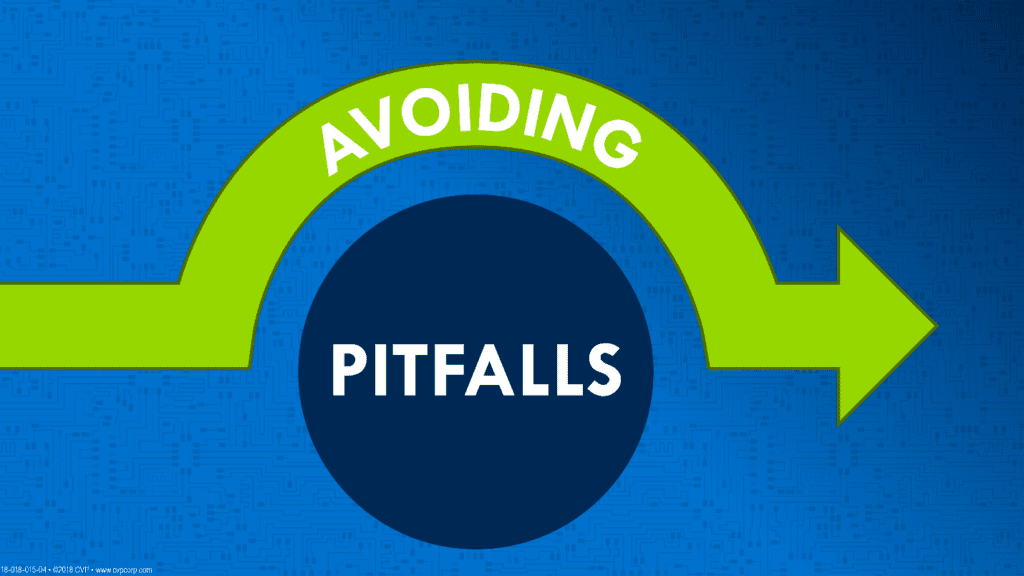Operating effective pay-per-click (PPC) campaigns is a central element of any online marketing strategy. But how do you know that a deep dive into PPC audits-uncover hidden gems are generating worthwhile returns?
The answer is in performing an in-depth PPC audit. A dive into PPC audits – uncover hidden gems, can enable you to fine-tune your campaigns and identify untapped potential. In this article, we’re going to discuss how to carry out a PPC audit for Google Ads, adopt best practices, utilize the correct tools, and minimize ad spend wastage.

WHY DO A PPC AUDIT?
A PPC audit is a thorough examination of your campaigns, ads, keywords, and strategy. It will reveal areas for improvement, optimize your ROI, and find hidden gems. Ongoing audits will make sure that your campaigns are objectives-aligned and you’re not spending money on low-performing ads. In the USA, with digital ads being extremely competitive, keeping an eye on your PPC performance is essential.
To know about the state of PPC in 2025, find the essential PPC statistics to help you:
- 73%of B2C marketers stated their organization used PPC advertising in the last 12 months
- 64%of B2B marketing professionals say they used PPC advertising at their organization in the past year, which is only behind the usage rate of social media advertising at 73%
- 93%of marketers say pay-per-click (PPC) as a marketing channel is “effective” or “highly effective”, making it the 2nd most effective channel after content marketing (96%)
- Only 10%of surveyed marketing professionals identify PPC as a primary focus for their budget allocation.
- According to surveyed B2B marketers, PPC advertising ranks as the most effective paid channel for content marketing activities, with 61%of respondents citing it as effective, followed by social media advertising (49%), and sponsorships (48%))
HOW TO PERFORM A PPC AUDIT FOR GOOGLE ADS
It is not that hard to perform a PPC audit for Google Ads. Below are some easy steps that you can take to get started:
STEP 1: EXAMINE YOUR CAMPAIGN STRUCTURE
A neatly organized campaign is the key to PPC success. Verify that your campaigns and ad groups are properly organized in a logical sequence. Cluster similar keywords under one category and maintain separate campaigns for multiple services or products. This ensures better targeting and ad relevance.
STEP 2: REVIEW YOUR KEYWORDS
Keywords play a vital role in the success of your PPC campaign. Make sure that your keywords match the search intent of your target market. It is essential to determine underperforming keywords in PPC campaigns. If there are keywords that are not yielding results, stop or substitute them with alternative keywords that are more relevant. Use Google Keyword Planner or SEMrush to find profitable keywords.
STEP 3: ANALYZE AD COPY
Your ad copy has to resonate with your audience. Make sure that your headlines and descriptions are good and appealing. A/B test various versions of your ad copy to determine which ones perform best. The more interesting and meaningful your ad copy, the better it is likely to get clicked on and converted.
STEP 4: REVIEW CONVERSION TRACKING
If you are not monitoring your conversions, then you’re passing up important information. Conversion tracking tools are needed for measuring the performance of your campaigns. Implement conversion tracking through Google Ads or third-party software such as Google Analytics. Monitor significant actions such as form fills, product sales, or app installations.
STEP 5: VERIFY YOUR BIDING STRATEGY
Your bidding strategy has a significant impact on what you pay for each click. If you’re not getting any returns, it’s probably time to change your bidding strategy. Try manual or automatic bidding options and see what works best for your campaign’s objectives.
STEP 6: ANALYZE YOUR LANDING PAGES
The landing page experience is essential for conversion. If your ads deliver a slow or irrelevant landing page, visitors will bounce in a hurry. Make sure that your landing pages have ad copy that matches and are designed for conversions. Also, ensure that they are fast and mobile-friendly.

BEST PRACTICES FOR PPC AUDIT CAMPAIGN OPTIMIZATION
Once your PPC audit is complete, it’s time for campaign optimization. Below are PPC campaign optimization best practices that will enhance your performance:
• TARGET THE RIGHT AUDIENCE
A successful PPC campaign relies heavily on effective targeting. Utilize demographic and geographic targeting to concentrate your budget on individuals who are most likely to convert. Through PPC campaign optimization, you can tailor your audience to your campaign objectives.
• USAGE OF NEGATIVE KEYWORDS
Negative keywords block your ad from appearing on irrelevant searches. This saves you from spending money on non-converting clicks. Always keep your list of negative keywords up to date so that your ads are displayed to the most targeted audience.
• USE AD EXTENSIONS
Ad extensions are an excellent means of making your ads informative and engaging. Utilize all the ad extensions available, including site link, callout, and structured snippets, to offer additional information that can lead to clicks.
• TEST AND OPTIMIZE REGULARLY
PPC campaigns involve ongoing testing and optimization. Test various headlines, descriptions, and calls to action (CTAs) regularly to determine what combinations perform best. Track performance and adjust accordingly.

THE MOST COMMON PITFALLS IN PPC AUDIT AND TIPS TO AVOID THEM
While performing a PPC audit, it’s essential to be aware of common mistakes that can derail your efforts. Here are some common pitfalls in PPC audits and tips to avoid them:
1. OVERLOOKING UNDERPERFORMING KEYWORDS
It’s simple to disregard poorly performing keywords. But keeping them in your campaign will burn through your budget.
TIP: Check keyword performance regularly and disable or substitute poorly performing keywords with more targeted and profitable ones.
2. FAILING TO UTILIZE NEGATIVE KEYWORDS
Not using negative keywords can cause your ads to show up on non-relevant searches. This leads to wasted clicks.
TIP: Regularly refresh your list of negative keywords so that you don’t get irrelevant traffic.
3. NOT TESTING ADS
Most advertisers are guilty of using the exact ad copy for far too long without testing.
TIP: Test various versions of your ad copy regularly. Test headlines, descriptions, and CTAs to determine which performs best in terms of engagement.
4. INCORRECT CONVERSION TRACKING
Without proper conversion tracking, you can’t know your actual campaign performance.
TIP: Implement adequate conversion tracking in Google Ads and Google Analytics. Ensure that you’re tracking all appropriate actions, like purchases or form submissions.
5. INADEQUATE BIDING STRATEGY
The incorrect bidding strategy can result in overspending or subpar results.
TIP: Bid strategy should be adjusted according to goals. For lead targeting, you can use a strategy such as Target CPA to optimize for conversions.
6. SLOW LANDING PAGE OPTIMIZATION
Your landing page must be optimized both for user experience and for conversion. A slow or non-relevant landing page will send visitors packing.
TIP: Make sure your landing pages are fast, mobile-compatible, and aligned with your ad copy.
PPC AUDIT STRATEGIES FOR MINIMISING AD SPEND WASTAGE IN GOOGLE ADS
Ad spend wastage is among the most significant challenges in PPC campaigns. Luckily, there are some strategies to minimise ad spend wastage in Google Ads:
1. SMART BIDDING
Smart Bidding automatically adjusts your bids for you based on likelihood to convert using machine learning. This helps you spend your budget wisely and avoid wastage. If you haven’t already, switch to a Smart Bidding approach such as Target CPA or Target ROAS.
2. OPTIMISE YOUR AD SCHEDULE
Think about placing your ads during the hours when your audience is most active. By implementing a targeted ad schedule, you can concentrate your ad spend on certain days or hours of the week, so you’re getting the most bang for your buck.
3. STOP UNDERPERFORMING ADS
If some keywords or ads are not doing well, stop them. It is pointless to spend money on ads that are not converting. Sticking to the ads and keywords that perform can help you utilize your budget better.
4. ANALYSE AND TUNE CAMPAIGNS REGULARY
Monitor your campaigns and adjust as needed. Refining your keywords, adjusting your bidding strategy, or tweaking your ad copy are all examples of things you can do to keep improving your ads constantly, which can enhance ad spend efficiency.

PPC AUDIT CHECKLIST FOR SMALL BUSINESSES
Small businesses have limited budgets, so it’s essential to optimize each dollar spent on PPC to get the most impact. Here’s an easy PPC audit checklist for small businesses:
- Review Campaign Structure: Ensure campaigns are organized and targeted effectively.
- Evaluate Keywords: Focus on high-performing keywords and remove underperforming ones.
- Optimize Ad Copy: A/B test different versions of your ad copy.
- Check Conversion Tracking: Ensure that your conversions are being tracked accurately.
- Examine Bid Strategy: Ensure you’re using the right bidding strategy for your goals.
- Optimize Landing Pages: Make sure your landing pages are fast, relevant, and optimized for mobile.
FREQUESNTLY ASKED QUESTIONS (FAQ)
- How do I know how often to run a PPC audit?
You should ideally do a PPC audit every three to six months. But in case your campaigns are big or complicated, you might need to do the audit more frequently.
- Can I minimize ad spend wastage on Google Ads?
To minimize ad spend wastage, target the right audience, employ the use of negative keywords, and tailor your bidding strategy. Pause ads that are not performing well and optimize the ad schedule to ensure efficient use of your budget.

CALL TO ACTION (CTA)
Wishing to take your PPC campaigns to the next level? Start with a thorough PPC audit today! By conducting a deep dive into PPC audits – uncover hidden gems, avoid pitfalls in the USA, you’ll ensure your ads are performing at their best. Reach out to us for a free consultation, and let’s optimize your campaigns together!
